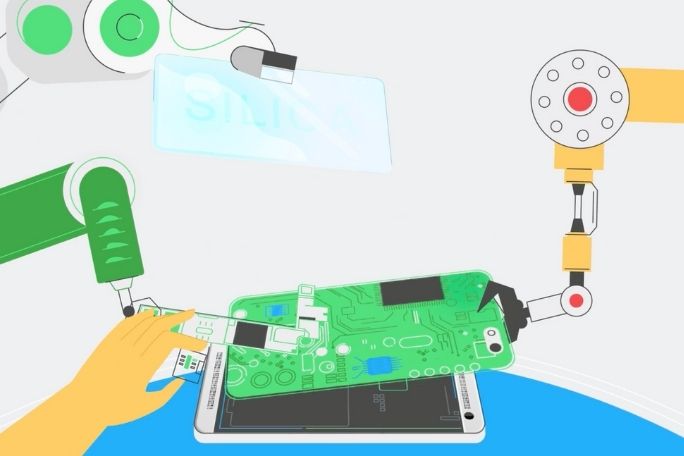Lesson summary
This lesson is part of a unit that explores the life-cycle of mobile phone materials through game-based learning. In this lesson, students complete a ‘branching stories’ game to investigate what impact mobile phones have on the environment. They will journey through purchasing and end of life scenarios to learn what happens when you use, upgrade, reuse or recycle a mobile phone. The students will then investigate the recycling process through a hands-on dismantling and sorting activity.
Learning intentions:
Students will...
- understand that the impact of mobile phones on the environment is dependent upon human choice
- understand the various choices that can be made about what to do with mobile phones when they are no longer needed or wanted
- understand the consequences of uninformed decision making as it relates to mobile phone recycling
- become familiar with the recycling process as it relates to mobile phones.
Success criteria:
Students can...
- identify the benefits of using, reusing and recycling mobile phones
- navigate decision making as a group
- simulate the dismantling and recycling process.
Lesson guides and printables
Lesson details
Curriculum mapping
Australian curriculum content descriptions:
Years 3 & 4 – Design and Technologies:
- Recognise the role of people in design and technologies occupations and explore factors, including sustainability that impact on the design of products, services and environments to meet community needs (ACTDEK010)
- Investigate how forces and the properties of materials affect the behaviour of a product or system (ACTDEK011)
- Investigate the suitability of materials, systems, components, tools and equipment for a range of purposes (ACTDEK013)
Year 4 – Humanities and Social Sciences:
- The use and management of natural resources and waste, and the different views on how to do this sustainably (ACHASSK090)
Year 4 – Science:
- Natural and processed materials have a range of physical properties that can influence their use (ACSSU074)
Syllabus outcomes: ST2-11LW, ST2-14BE, ST2-15I, ST2-16P, GE2-2, GE2-3, GE2-3, ST2-13MW
General capabilities: Critical and Creative Thinking, Ethical Understanding
Cross-curriculum priority: Sustainability
Relevant parts of Years 3 & 4 achievement standards:
Years 3 & 4 – Design and Technologies:
- Students examine social and environmental sustainability implications of existing products and processes to raise awareness of their place in the world.
Relevant parts of Year 4 achievement standards:
Year 4 – Science:
- Students broaden their understanding of classification and form and function through an exploration of the properties of natural and processed materials.
Year 4 – Humanities and Social Sciences:
- Students examine the concept of sustainability, and its application to resource use and waste management, past and present, by different groups.
Unit of work: MobileMuster – Gamifying Phone Recycling – Years 3-6
Time required: 70 mins
Level of teacher scaffolding: Medium – provide direction and facilitate class discussion
Resources required
- Student Worksheets – one per student
- A device capable of presenting videos to the class
- Four pieces of scrap paper or sticky notes for each group of four students in your class. Write either ‘plastics’, ‘metals’, ‘glass’ or ‘unsure’ on each groups’ set of four pieces of paper
- ‘When We Mine’ ebook ready to project to the class
- Scorecard (one per group of approx 4 students)
- Enough old mobile phones (not smart phones) for groups of four students to have one each OR a class set of the Paper Phone Worksheet
Skills
- Collaboration
- Communication
- Ethical understanding
- Global citizenship
- Problem solving
Additional Info
This lesson has been developed as part of Planet Ark’s National Recycling Week. Following this lesson plan is an ideal way for your shicchool to take part in MobileMuster. You’ll be joining thousands of amazing teachers in making a difference and creating positive environmental change. Take part in the Schools Recycling Right Challenge for Planet Ark’s National Recycling Week. Register your lesson or other activities today!


Welcome back!
Don't have an account yet?
Log in with:
By signing up to Cool.org you consent and agree to Cool's privacy policy to
store, manage and process your personal information. To read more, please see
our privacy policy here(Opens in new tab).
Create your free Cool.org account.
Many of our resources are free, with an option to upgrade to Cool+ for premium content.
Already have an account?
Sign up with:
By signing up to Cool.org you consent and agree to Cool's privacy policy to
store, manage and process your personal information. To read more, please see
our privacy policy here(Opens in new tab).